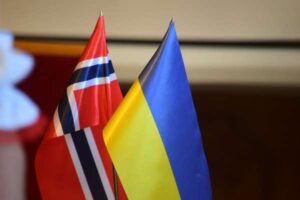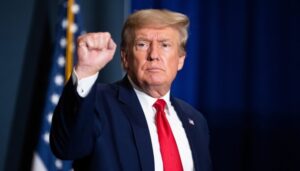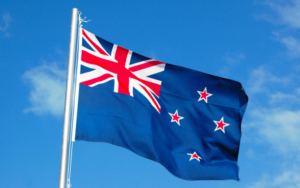
The Norwegian government has allocated 1 billion Norwegian kroner ($98.3 million) to Ukraine for the purchase of natural gas, according to Serhiy Koretsky, CEO of Naftogaz Ukraine.
“This is a clear response from our partners to Russian terror aimed at depriving Ukrainians of heat in winter,” he wrote on Facebook on Friday.
According to Koretsky, Naftogaz will use these funds to purchase gas to meet the needs of the heating season.
“The assistance received will be an important contribution to a stable winter in 2025-2026 and to strengthening the country’s energy security,” he stressed.
As reported with reference to Prime Minister Yulia Svyrydenko, on August 13, Naftogaz of Ukraine and the European Bank for Reconstruction and Development (EBRD) signed an agreement for a renewable loan of EUR500 million.
“This is the bank’s largest project in our country.
But most importantly, this is the first time such a loan has been provided under an EU guarantee, without a state guarantee from Ukraine,” she commented.
In addition, in April, it was reported that Naftogaz of Ukraine had been granted a EUR270 million loan from the EBRD under a state guarantee to create strategic gas reserves, which Norway supplemented with a EUR139 million grant.
According to the EBRD, the total amount of its financing to Naftogaz of Ukraine since the start of the full-scale war in 2022 has reached EUR1.6 billion.

In July this year, Ukraine exported about 1.98 thousand tons of live cattle, which is 62% more than in the previous month and 14% more than in July last year, according to the Association of Milk Producers (AMP).
The association noted that the cash proceeds from exported animals amounted to $4.19 million, which was 24% less than in June 2025, but 32% more than in July last year. In January-July 2025, Ukraine exported 11.71 thousand tons of live cattle (+72% compared to the same period last year) worth $25.65 million (+111%).
In July, Ukrainian exporters supplied 35 tons of fresh or chilled beef to foreign markets, 70 times more than in June this year and 50 times more than in the same period last year. Export proceeds for the goods delivered amounted to $165,000, which was only 9% higher than in the previous month, but 20 times higher than in July 2024.
In January-July 2025, Ukraine shipped 101 tons of chilled beef (-89%) worth $587 thousand (-89%) to foreign markets.
At the same time, the actual volume of frozen beef exports from Ukraine in July 2025 amounted to 1.68 thousand tons, which is 4% more than in June 2025, but 1% less than in July 2024. Revenue from goods delivered in this segment amounted to almost $7.56 million (-48% and -9%, respectively).
In January-July 2025, Ukraine exported 11.27 thousand tons of frozen beef (+21% compared to the same period last year) worth $45.14 million (+17%).
“The increase in Ukraine’s exports of live cattle and beef in July is fully in line with the situation on the world market. The supply of cows and red meat on the world market is declining,” explained AVM analyst Georgy Kukhaleishvili.
At the same time, Ukraine imported 242 tons of live cattle in July 2025, which is 1% less than in June 2025, but 125% more than in July last year. Imports of chilled beef fell to 10 tons (down 30% from the previous month and 20% from a year ago), while frozen beef imports fell to 123 tons (down 17% and 39%, respectively).
In January-July 2025, Ukraine increased imports of live cattle by 36% compared to the same period last year, to 494 tons, chilled beef imports to 80 tons (+10%), and frozen beef imports to 941 tons (-36%).
The foreign trade balance in July 2025 was positive and amounted to $8.81 million, according to the AVM.

The TAS Agro agricultural holding has completed the 2025 early grain harvest, gathering over 130,000 tons of grain from an area of 22,000 hectares, the holding’s press service reported on Facebook.
TAS Agro noted that the average yield of winter wheat was 5.9 tons per hectare, exceeding the planned figures. The best results were in the Northern cluster (Chernihiv region), where the yield reached over 7 tons per hectare.
“The 2025 harvest was a test for all farmers, as rainy weather during the peak harvesting period slowed down the pace of work and could have affected the quality of the grain. However, the agricultural holding used all available resources to ensure the timely harvesting of the crop, and its elevators ensured the timely reception and high-quality storage of the harvest,” said Oleg Zapletnyuk, CEO of TAS Agro.
According to him, 75 grain harvesters and other necessary equipment were involved in the harvest.
According to the CEO, the agricultural holding achieved good results thanks to timely changes in cultivation technology, systematic analytics, and the responsible and coordinated work of all divisions. TAS Agro began the 2026 sowing campaign and soil preparation for winter wheat sowing in parallel with the harvest. As of mid-August, 11,000 hectares of winter rapeseed have been sown out of the planned 16,000 hectares.
The company’s clusters are preparing for the harvesting of late crops and a range of autumn field work. Sunflower harvesting will begin soon in the Southern cluster.
The agricultural holding is part of the TAS Group, which was founded in 1998. Its business interests include the financial sector (banking and insurance), pharmaceuticals, industry, real estate, and venture projects.
The founder of TAS and beneficiary of the TAS Agro agricultural holding is Serhiy Tihipko.

In a week or two, it will be clear whether the war will end or the fighting will continue, according to US President Donald Trump.
“I think President Putin wants to find an answer, and we’ll see. And if after a certain amount of time, not too far from today, a week or two, we’ll know whether we’ve solved this problem or whether these terrible battles will continue. We will do everything we can to put an end to this,“ Trump said before meeting with Ukrainian President Volodymyr Zelensky and European leaders.
He noted that there are two sides ”that want to make a deal.”
“And it’s possible that it won’t work out. On the other hand, it’s possible that it will work out. And we will save thousands and thousands of lives every week. So this is what we really have to do. Or at least we have to make every effort. But I think we can get a very good result,” Trump stressed.

New Zealand has faced an accelerated outflow of population abroad: in the year ending June 2025, 71,800 citizens left the country, the highest figure in 13 years, according to media reports citing official data from Statistics New Zealand (Stats NZ). The main destinations for relocation are Australia and the UK. The outflow is accompanied by a weakening economy and rising unemployment to 5.2% in the second quarter, Reuters notes.
At the same time, the total net migration gain (arrivals minus departures, including foreigners) in June 2025 was only +13,700 people, compared to +70,400 a year earlier, according to the latest release from Stats NZ. In other words, the migration “shoulder” supporting demographics has shrunk fivefold.
According to industry analysts, in the 12 months to June 2025, ~138,900 people arrived in the country for the long term, while ~125,200 left, resulting in a modest net gain of +13,700. For comparison, a year earlier, the inflow exceeded +70,000, and the monthly contribution of migration to the population fell from ~6,000 to ~1,000 people.
Experts attribute the increased “outflow” of citizens to a combination of factors: weak GDP growth, a cooling labor market, and improved employment opportunities abroad (primarily in Australia).
The age structure of those leaving is dominated by young professionals under 30, which increases the risk of a “brain drain.” According to media reports, the authorities hope to stabilize the situation by easing monetary conditions and making targeted adjustments to migration policies.
However, the coming quarters are expected to be influenced by high outflows of residents, accompanied by a decline in foreign arrivals compared to the record levels of 2023-2024.
According to Stats NZ, New Zealand’s population was estimated at 5.33 million as of March 31, 2025; further dynamics will largely depend on migration flows.

The Ministry of Energy of Uzbekistan and the Afghan state energy company Da Afghanistan Breshna Sherkat (DABS) have signed agreements on infrastructure development worth a total of $243 million.
In particular, the following major projects have been approved:
During the ceremony, DABS CEO Abdul Bari Omar called these four agreements vital for ensuring a reliable power supply in Afghanistan.
An agreement was also signed between DABS and Uzbek companies for the supply of electricity for a period of 10 years.
For reference: Uzbekistan has been supplying electricity to Afghanistan since 2002. Last December, Uzbekistan extended its agreement to export electricity to Afghanistan until 2025. Afghanistan imports 80% of its electricity from Uzbekistan, Tajikistan, Turkmenistan, and Iran, with the rest produced domestically.